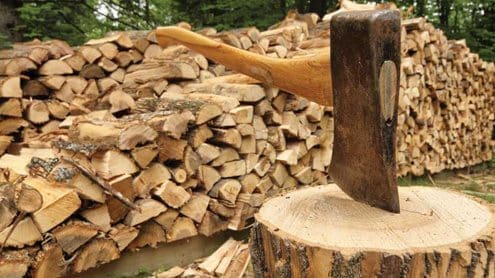 My wife and I had dinner with old friends last month. One continues to work in the final year of distinguished academic service as a professor; the other has recently retired from a career in planning and consulting. In these situations, I find that our conversation tends to focus on the partner who has made the exit from the world of work.
My wife and I had dinner with old friends last month. One continues to work in the final year of distinguished academic service as a professor; the other has recently retired from a career in planning and consulting. In these situations, I find that our conversation tends to focus on the partner who has made the exit from the world of work.
“So, what does a day look like now?” I inevitably ask.
“I am feeding a homeless man,” was the reply.
Immediately, my attention was centred on the comment.
“He lives down at Spanish Banks in the forest adjoining the beach. He came to our attention during a series of beach walks. He is perhaps in his 50s and lives by himself. He bathes in the ocean and uses the public washroom in one of the beach change houses. He sleeps under a blue plastic tarp at night. I realized that he wasn’t cooking his meals and simply began one day by taking him a hot meal. He was very appreciative.
“Now I go down every day and deliver a meal that he eats by himself. It’s a pretty simple act but it is necessary. I have the time and am pleased to do it. We also bought him a new tarp and helped him string it between the trees where he lives. He stays drier now.”
The week after this dinner, I was talking about it with my 94-year-old artist-mother. She then began to tell me about the children’s art classes she gives in her apartment on Balsam Street. I had never heard of them before for some reason.
She has quietly invited some young parents in her building to bring their kids up to her studio on Saturday mornings. There she lays out paper, coloured pencils, pastels and watercolours on small tables, and teaches drawing and painting. Her young students produce landscapes, still-life studies and occasional human portraits.
“I’m too old to take them outside – but it would be fun to go sketching again in Stanley Park!” she says with a smile.
“I do it for fun and to give their parents a bit of a break,” she says.
Her explanation takes me back over 60 years in my own life, to when my mom took me to Stanley Park on summer Saturdays to draw and paint in the Seven Sisters Grove. I recall it as a magnificent first-growth cluster of firs and cedars near the Vancouver Aquarium. On these artists’ expeditions, we were often accompanied by her friend, Peg Harris. I remember learning from Mom back then that she was someone called Lawren Harris’s daughter. Several years later, I read that he was one of the founders of Canada’s Group of Seven. He also took his kids sketching en plein air, just like Mom.
While my artistic spirit is reawakening and still finds the outdoors nourishing, I tend to go outside now to exercise. And recently I have ritualized what we call “Wood Camp” with my old school pal Steve.
Steve’s great uncle Jabez was a Yukon gold rusher, who eventually realized that he could make more money cutting firewood for the paddle wheelers’ boilers than he could by panning for gold dust in Dawson City. Consequently, he and a few Newfoundlander buddies founded the Buna Vista wood camp on the Yukon River above Lake Laberge. There, they set about building their Yukon fortunes with Swede saws and double-bitted axes.
It is really Steve’s kindness that has recreated Wood Camp at our house up the Sunshine Coast. Very much in the spirit of Jabez, Steve makes time every September to come over from Sooke to lend his labour to the cause of our winter firewood. He also brings fresh-baked bread and an apple pie from his kitchen. I supply the dry rounds of fir and cedar, sledges and wedges, and an axe. Invariably, Steve splits while I wheelbarrow and stack. It is the essence of male bonding to split wood with a friend once a year.
Now when the political turmoil south of the border and the hurly-burly of everyday life gives me pause, I stop and think of a homeless man’s dinner, an art class for five-year-olds run by a nearly 95-year-old and Wood Camp with Steve.
Then I get back in the game.
Mike Robinson has been CEO of three Canadian NGOs: the Arctic Institute of North America, the Glenbow Museum and the Bill Reid Gallery. Mike has chaired the national boards of Friends of the Earth, the David Suzuki Foundation, and the Canadian Parks and Wilderness Society. In 2004, he became a Member of the Order of Canada.
The views, opinions and positions expressed by columnists and contributors are the author’s alone. They do not inherently or expressly reflect the views, opinions and/or positions of our publication.

